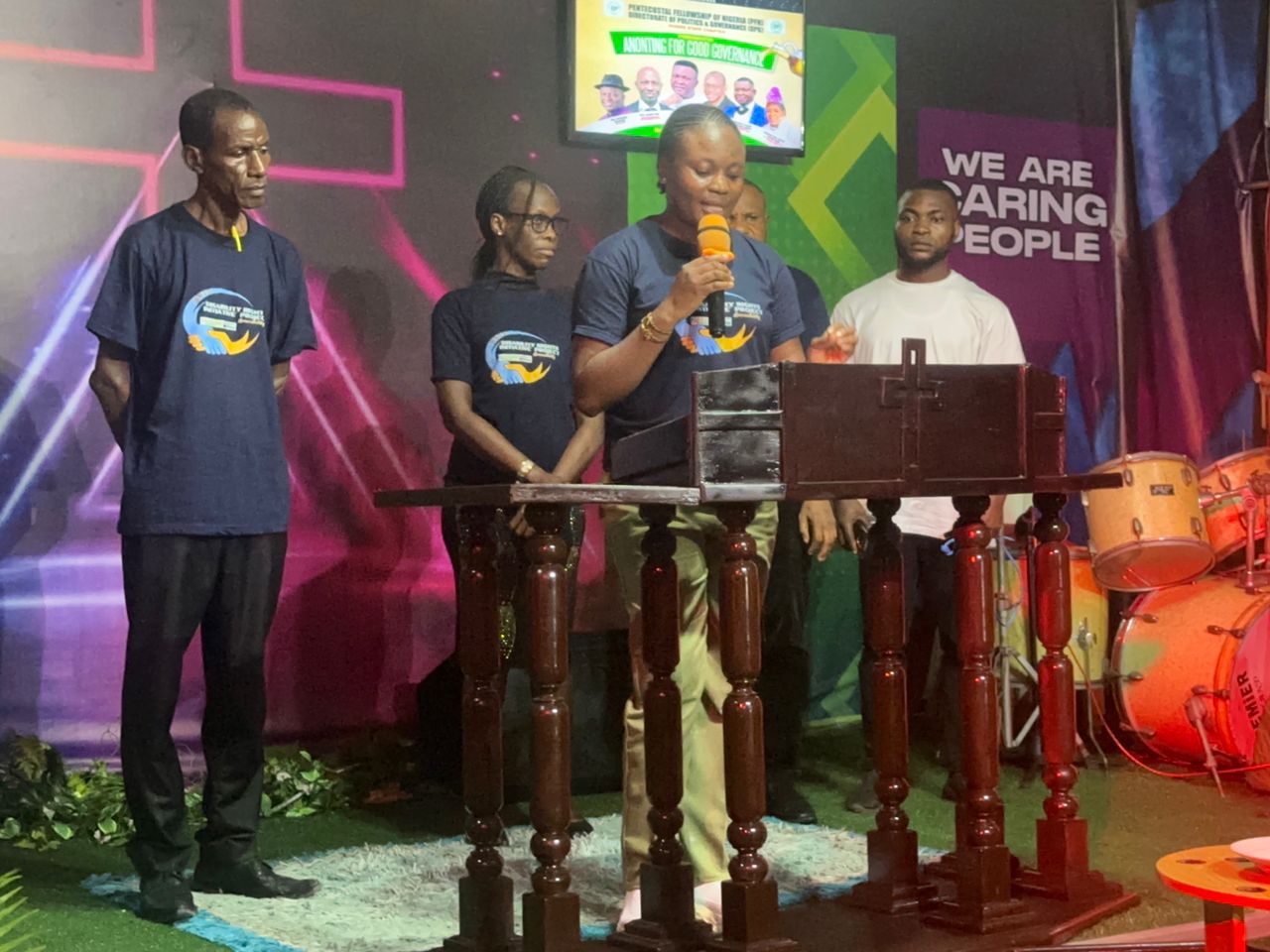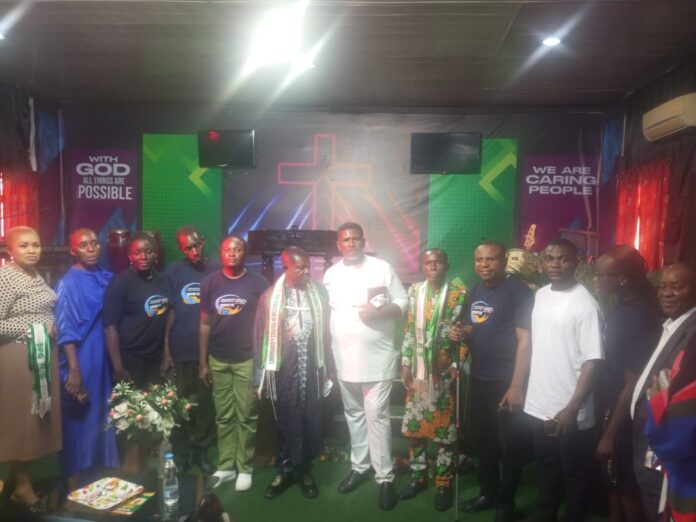In a significant move towards ensuring inclusivity within religious spaces, the Freky Andrew-Essien Care Foundation, widely known as FAECARE Foundation, has taken a bold step to advocate for improved accessibility for Persons with Disabilities (PWDs) within places of worship. The foundation recently carried out an advocacy visit to the Pentecostal Fellowship of Nigeria (PFN), Rivers State Chapter, under the auspices of the Directorate of Politics and Governance (DPG). This engagement took place during the one-day summit titled “Anointing for Good Governance,” where religious leaders across the state convened.

This advocacy visit forms part of the ongoing Disability Rights Initiative Project on Accessibility (DRIPA), a critical initiative spearheaded by FAECARE Foundation with support from the Disability Rights Fund (DRF). The project is focused on addressing the persistent challenges PWDs face in accessing physical environments, including places of worship. Recognizing the influential role that religious leaders play in shaping societal values and behaviors, FAECARE deemed it essential to engage them directly on the issue of accessibility within their congregations.
Addressing the Barriers to Worship
Led by Program Officer Elsie Worgor, the FAECARE advocacy team presented a compelling case to the religious leaders on the barriers PWDs encounter when trying to access religious centers. Worgor articulated the real-life consequences of inaccessibility, highlighting how physical barriers such as stairs without ramps and the lack of sign language interpreters during services prevent many PWDs from fully participating in religious activities.
She pointed out that these barriers not only deny PWDs access to spiritual nourishment but also isolate them from their communities. “The Bible says that the entrance of God’s word brings light, but how can this light reach those who are physically unable to access the places where it is being preached?” she asked, challenging the religious leaders to reflect on the inclusivity of their worship spaces.
A Call to Action: Practical Solutions
Worgor didn’t just outline the problems; she offered practical solutions that could be implemented by the churches to make their spaces more inclusive. She recommended the installation of ramps for wheelchair users, the provision of sign language interpreters for congregants with hearing impairments, and the creation of designated seating areas that cater to the needs of PWDs. These changes, she emphasized, would not only enhance accessibility but also send a powerful message of inclusivity and respect for all individuals, regardless of their physical abilities.
The response from the Directorate of Politics and Governance was overwhelmingly positive. The leaders expressed that this was the first time they were hearing such a detailed and focused discussion on the issue of accessibility in places of worship. This revelation prompted the Directorate to pose a critical question to the religious leaders present: “Have you truly considered how accessible your churches are for PWDs?”
Commitment to Change
The engagement did not end with mere discussions. The head of the Directorate of Politics and Governance, visibly moved by the advocacy, made a personal commitment to begin implementing changes within his own place of worship. He announced plans to construct a ramp for wheelchair users and to address other accessibility needs in his church. This commitment was a clear indication that the advocacy had not only been heard but had sparked a genuine desire for action among the religious leaders.
The advocacy visit also saw the distribution of essential materials to the PFN/DPG, including pamphlets on the United Nations Convention on the Rights of Persons with Disabilities (UNCRPD) and accessibility stickers provided by FAECARE Foundation. These materials serve as valuable resources for the religious leaders as they begin to take steps towards making their places of worship more accessible.
A Milestone for Disability Rights Advocacy
The outcome of this advocacy visit marks a significant milestone in the broader movement for disability rights in Nigeria. FAECARE Foundation’s engagement with the PFN/DPG is a clear example of how targeted advocacy can bring about meaningful change. By reaching out to religious leaders, who are often seen as moral compasses in their communities, FAECARE is not only promoting accessibility but is also fostering a culture of inclusivity and respect for human rights within the religious sector.
The visit concluded with a photo session between the executives of the PFN/DPG and the FAECARE advocacy team, symbolizing the beginning of what is hoped to be a long-lasting partnership in the fight for the rights of PWDs.
Looking Forward
As FAECARE Foundation continues its work under the DRIPA project, the engagement with PFN/DPG stands as a testament to the power of advocacy. The foundation remains committed to pushing for policies and practices that ensure PWDs are not left behind, especially in spaces as vital as places of worship.
This advocacy effort is just one part of a larger strategy by FAECARE to address the systemic barriers that PWDs face in Nigeria. The foundation’s work is a reminder that accessibility is not just a matter of infrastructure—it’s a matter of justice, equity, and the fundamental right of every individual to participate fully in society.
As the religious leaders in Rivers State begin to take steps towards making their worship centers more accessible, it is hoped that this movement will spread across the country, leading to a more inclusive Nigeria where every person, regardless of their abilities, can worship freely and without barriers.


